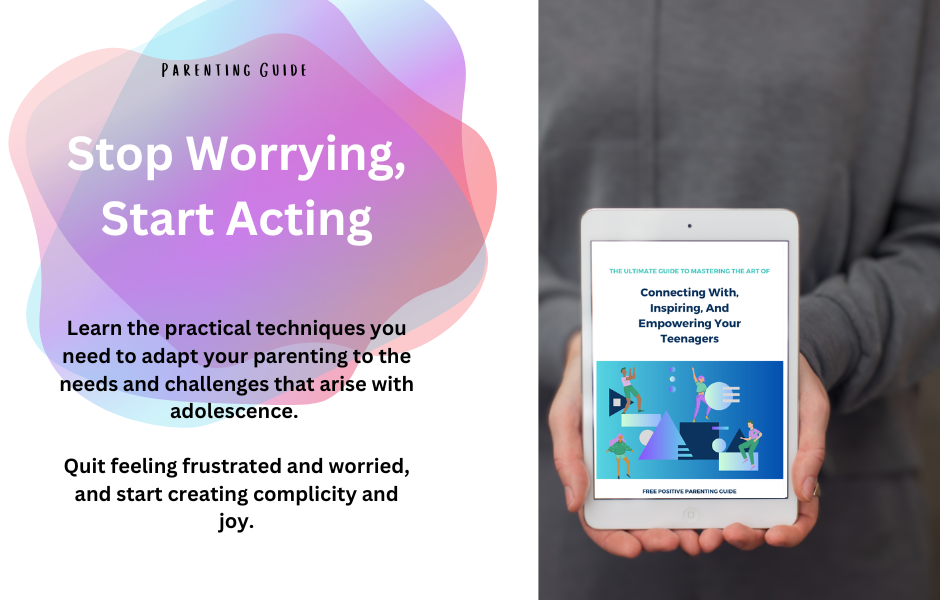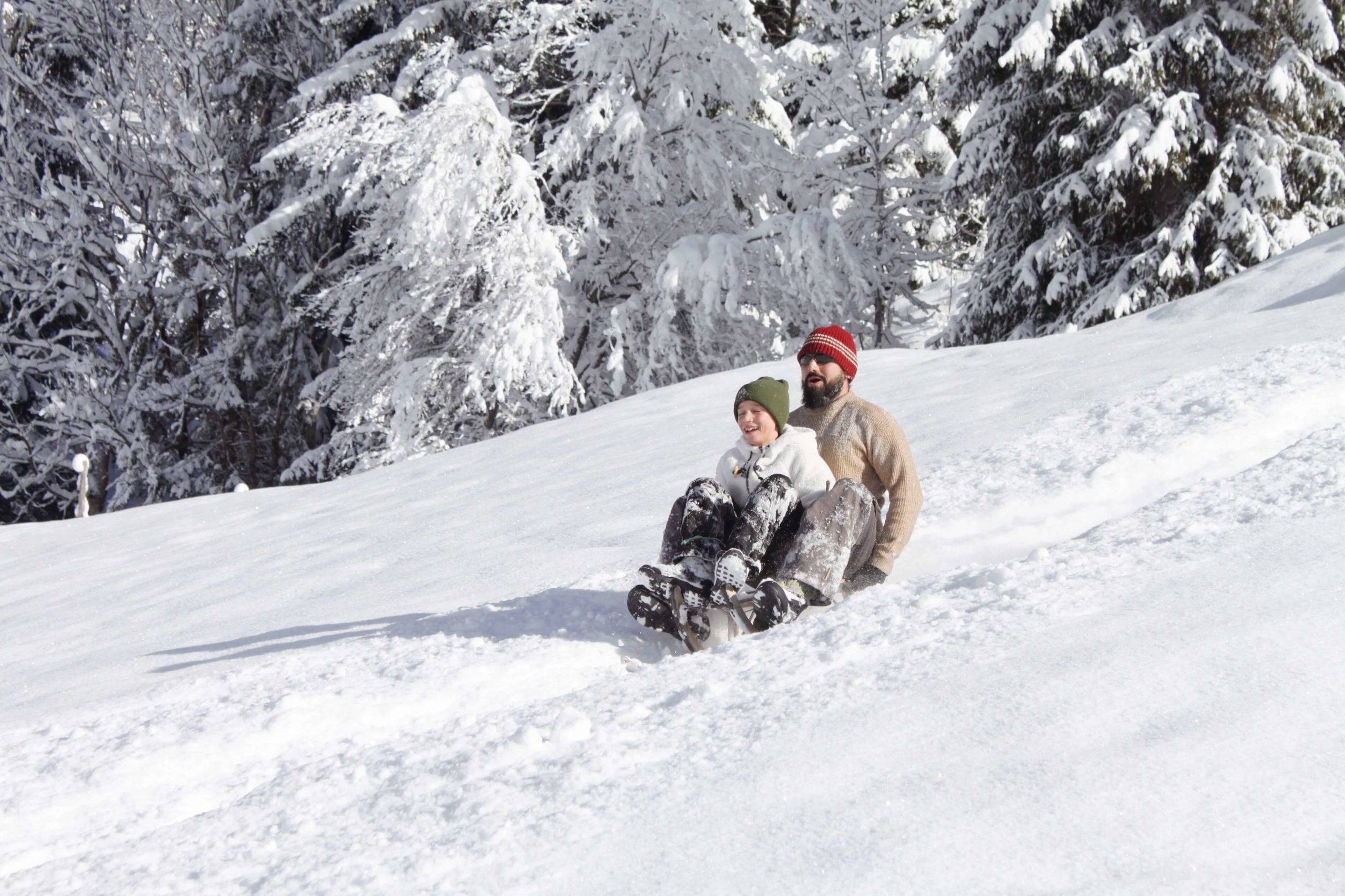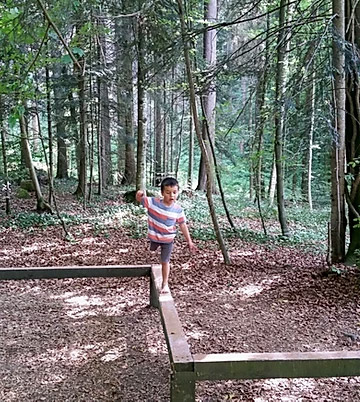
#1 The 3 things you don’t need to worry about (regarding your kids)
A little history of worries
This is a good time to take a look at your history of worries. What kind of kid were you? Were you an adventurer, impersonating Indiana Jones while jumping from a tree with a rope? Or more of a quiet child, reading books and drawing fantasy worlds? Maybe a bit of both. But the real question is: what kind of worried parents were your parents? My mother, for instance, had this belief that I would get kidnapped. I don’t know where she picked that up, maybe there was a big kidnapping case in the newspaper someday, but she was really scared of it. Anyway, as a consequence, during all my childhood I lived in the fear that I would eventually get abducted: it was just a matter of time. And yet, it didn’t happen, of course (I still look over my shoulder though).
What about you? What is your biggest fear regarding your child(ren)? Take the first answer that comes to your mind, yes, that’s the one from your guts. All right, now try to think about it with some distance and rationality. I know, you can’t. Because it is an irrational fear. Let’s look into it.
Back to my mom and her « my daughter-will-get-abducted » phobia: around 350 people under the age of 21 years old are abducted every year in the US. In the meantime, 2000 children die every year from an unintentional home injury. Drowning is the leading cause in death for kids between 1 and 4, and yet, we spend more time teaching our children about « bad strangers » than teaching them to swim! Infants can learn to back float from 3 months old by the way. They don’t really like the cold water part of the process, but they can.
By now, you will have understood that fears are irrational, which means that no amount of statistics or theories can help you overcome them. And yet, something can be done, its called « letting go ». Yes, you can learn to let go and to not let your mind and ideas get to control you or the way you raise your children. Good news, isn’t it?

Your child isn’t suicidal
I know you might think otherwise when you see him running on the beach towards those huge waves (I have a wave phobia), but your child has no intention of dying. The thing is, children’s brain is still growing, and they don’t have all the connections we do. Their perception of movements and size is not like ours. For instance, it takes a quarter of a second for an adult to know if a vehicle is moving or not but the same process takes 4 seconds for a 6 years old child. Until he’s around 7 or 8, a child doesn’t really grab « danger assessment“, but it’s not to annoy you, his brain isn’t up to the task yet!


What can you do? First of all, remember that children don’t have our understanding of words, at 7 they get maybe 50% of all we say: so make it simple! Don’t go in an talk about waves and tides and currents.
Make a simple statement: « you can play and run on the beach but today the waves are too big for you to play near them ».
You can also be a 5 stars parent and go with them close to the sea so that they can experiment with the big waves. If your child is 10 or more, don’t take him for an idiot, he’s not going to jump into danger.
Oh, and just to make sure we understand each other: I’m talking reasonable danger here, not 300 ft cliffs with a storming sea and white sharks at the bottom.
How to make the difference between lethal danger and a mother’s imagination? Listen to your gut, not to your mind. We are bombarded with limiting beliefs and negative ideas, but the first thing we feel, before all that, this is the clue you’re looking for: « is it safe for my child to play there? » « yes/no ». That’s it.
Your child isn’t clumsy
I can remember my mom stopping to breathe because I missed a step… it got my attention all right (instead of my needing feet) and I felt. So, what with the spilled glasses, the tumbling down the stairs, the missing a step and others « I’m-so-sorry-I-didn’t-mean-to-have-tomato-sauce-on-my-shirt » situations? Well, first of all, and as I said earlier, children are in a development process. From lying on their back when they were born to grab a spoon, pick some food and drive it to their mouth 3 years later, there is a long, hard way that should be acknowledged. Things take time and children need to practice. Take a few moments to remember the last time you tried something new. For me, it was curling. I know. Weird. Anyway, I had to keep my balance on the ice (while running), find out how to slide the stone (not a big success yet) AND aim at a target. Well, 3 hours later I was far for mastering the technique. So when our children run, yes, they might stumble, but there is no need to shout, they will not die. Yes, they might slipe from the toboggan’s ladder, but they will survive. And if they feel your confidence in them, they will get it for themselves. Life lasting present.
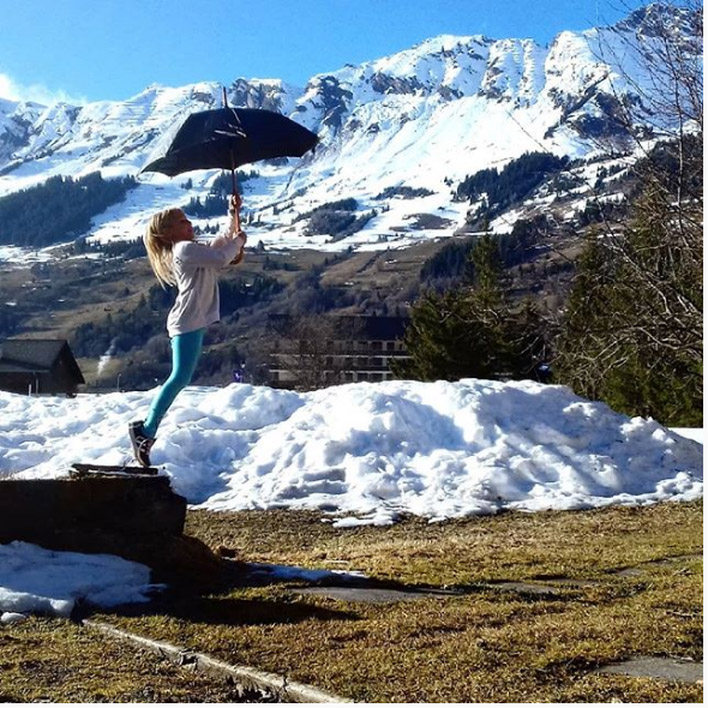
What can you do? You can give them opportunities to practice. Let them have real glasses, not plastic ones, they will be more careful because they feel they are being trusted.
You can give them a chance to clean up if there is an accident. They will learn that it’s not a big deal AND that they are able to fix it themselves.
And if you want to be a five stars parent, you can tell your kids about this article and experiment with them what it is like to be a child: take a salad bowl, put food in it, and try to eat with a ladle while seating with your nose at table level.
One last thing: mind what you say. If you tell a child « watch out, you gonna fall from the tree », there are good chances that he might fall (he trusts you). You could try « that’s pretty high, be mindful where you put your hands and feet » (you trust him not to fall, he will be careful and he won’t fall. And « that’s pretty high » makes him look down and measure if he really wants to go higher or not).
Your child isn’t foolish
I know it is pejorative in English to say foolish, so I’ll make sure we have the same understanding of it: I mean it as unwise and stupid (definitely pejorative actually). I know you don’t think that your kid is stupid! I’d rather say that you might underestimate him. Big time.
When my grandpa was a kid, he was living on a farm. Before going to school, he would walk the whole area to deliver milk. Nobody assumed he was too small to find his way, be responsible for his merchandise, get the money and be on time at school. In a couple of generations, children have lost their autonomy. Because of the fear of abduction, traffic, and our fast-paced life, children tend to have mostly organized activities and regulated play environments. Of course, it is stressful to let your children out in a city, and autonomy should be adapted to your child’s age and comfort, but, surely, there is some room for improvement, isn’t there?
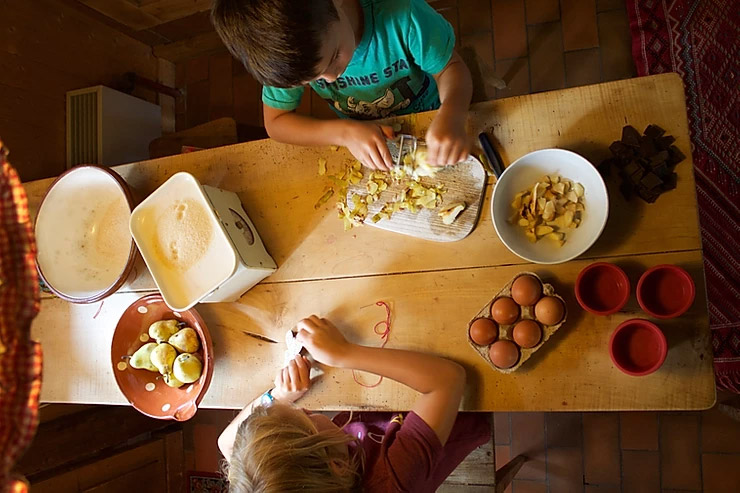
What can you do? Let’s not forget about the past 4000 years (since the first civilizations) and give back some freedom to our children. They need it to grow, to practice their skills and develop self-confidence. You can go at your own pace. Why not start with an environment where you feel comfortable? Maybe next time you need something from the grocery store down the street, you can ask your child to lead the way. And another day he’ll do the speaking and he’ll pay, and so on, until you feel comfortable to let him go by himself. He will love it. And you will be proud of him.
If you want to be a 5 stars parent, ask your child to choose an activity (going to the swimming pool, baking cookies,…) and give him more responsibilities than you would have normally. At the end of the activity, express how it felt to see him do something by himself.
At this point, you have realized (maybe not integrated but realized is already good) that your child is how he is because: he is still growing and his brain and body aren’t working like ours. We need to adapt (sometimes, let’s not make an obsession out of it) to them in order for them to get a chance to practice and master new skills. They also need our trust and some freedom (I love it, it sounds like a recipe).
Let’s get back to you, parents full of worries and irrational fears. I told you at the beginning that you would learn how to improve this situation. Here it is.
How to let go of irrational fears
Remember that anxiety is motivated by us trying to avoid the feared outcomes (you can read that twice). So when we are anxious, our natural reaction is to never be in a situation where the feared outcome might happen (fear of abduction triggered by ma child playing alone). It becomes a problem when one organizes his life around his fears (or others’ lives when you’re a parent).
When facing anxious circumstances, you can take a moment to assess the situation. Don’t look only at the potential danger but also at the resources. Does your son want to ride his bike in the street?
Potential dangers:
-
might get abducted
-
might be run over by car
-
kids might be mean
Potential resources:
-
outdoor playing is good for the health and for the mind
-
playing with other children is an important part of child development
-
teach safety rules to your child (not staying alone, coming home before dark, not furtherer than the oak tree,…)
-
invite his friends over at your place so that you know them too
-
get him a clock for his birthday and give him a curfew
-
ask him to come by to say hello every half an hour
-
teach him the rules of riding on a road
-
go out with him the first times and see how he is handling things (I used to grab a chair and a book and pretend I just loved reading in the street)
-
go out from time to time for a couple of minutes (be honest about it, say that you’re checking on him)
-
remember: he isn’t suicidal, he isn’t clumsy and he isn’t foolish.

Ressources you have and you didn’t know about:
-
think of a situation when your child wasn’t with you and you still felt confident.
-
relax your body, concentrate on expiring rather than inspiring.
-
visualize a timeline, now is the moment you fear. Go forward in the future to the moment when your child will come back home, safe and happy. See how you feel then. Look back at the present moment: there is no fear.
I wish you to see your children with new eyes and see them for what they are: capable, autonomous and full of potential, given the chance.
I would be curious to know about what kind of worried parents you had or you are, if you have a question just ask!
Don’t Forget To Join Our Community To Get Inspiration And Tips Straight in Your Mailbox

I wish you all the best with your kids. Always remember — we’re all doing the best we can in any given moment, so try not to judge yourself too harshly. Be confident and listen to your intuition. If what you do comes from a place of love, then you’re already on the right path.

If this post resonated with you — if you’ve ever walked ten paces behind your child, wondering if you’re ruining everything — come join us on Instagram. It’s where I share reminders, reflections, and the odd parenting confession… for mums figuring it out one heart-twinge at a time.

If you want more resources, ⬇️ keep scrolling ⬇️
Looking for a way to set boundaries that feel fair for everyone? Here’s your home guide to healthy boundaries.
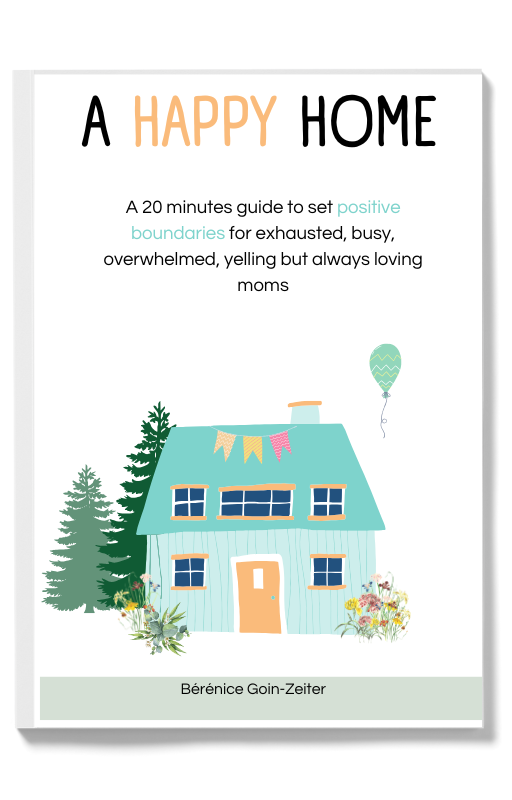
If your child is or is becoming a teenager, check out our parenting guide for teenagers!
